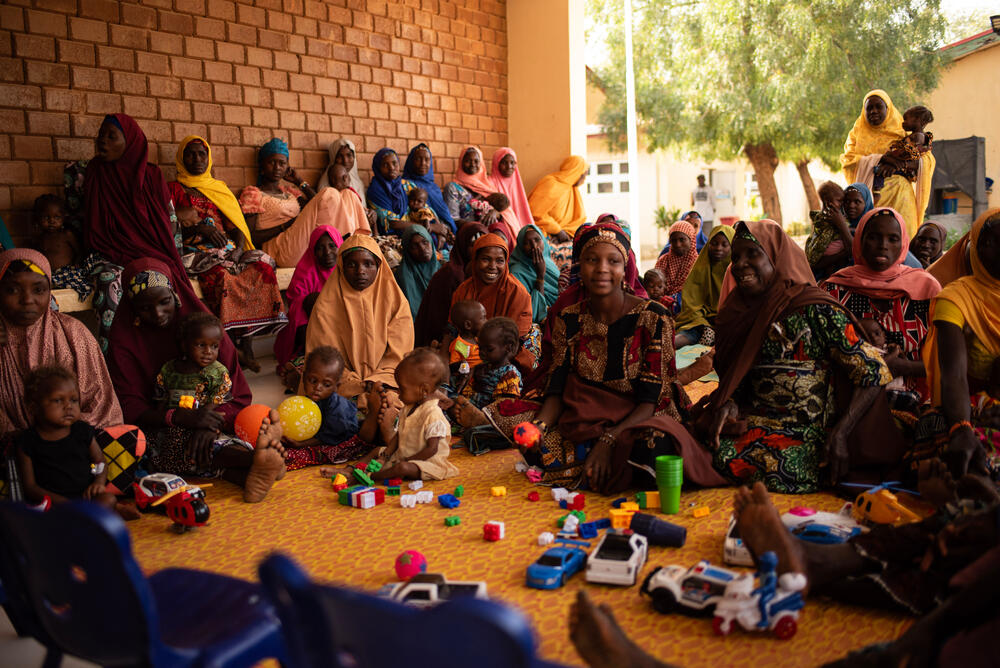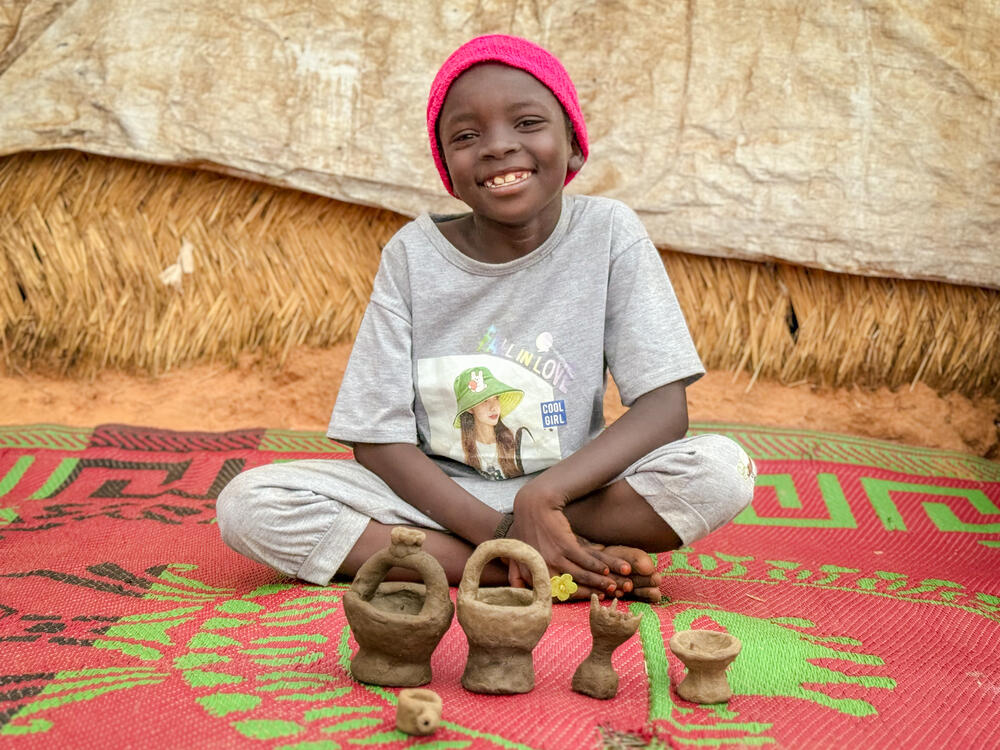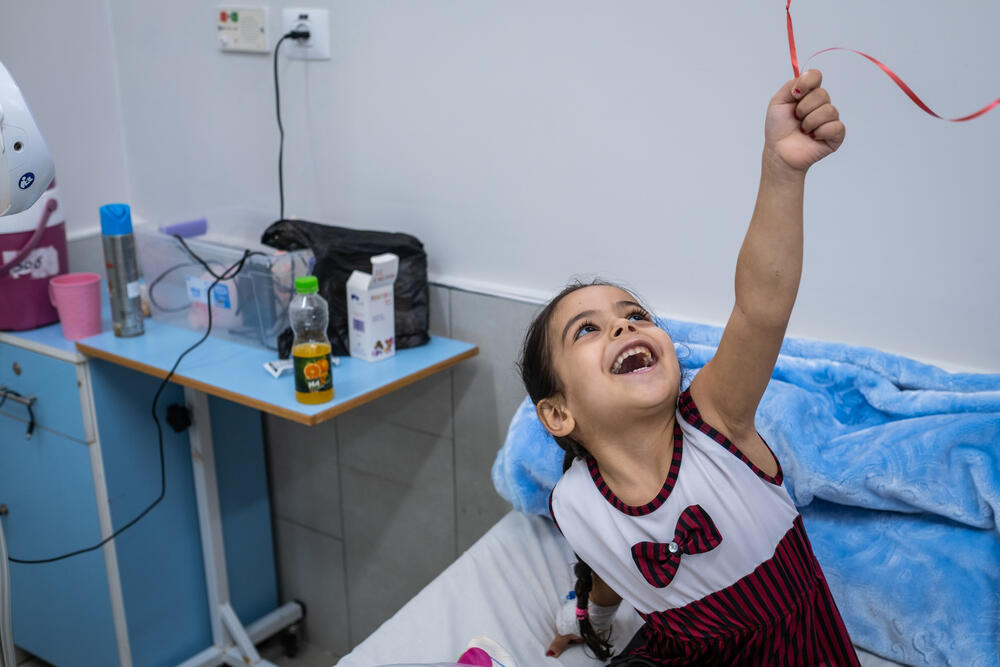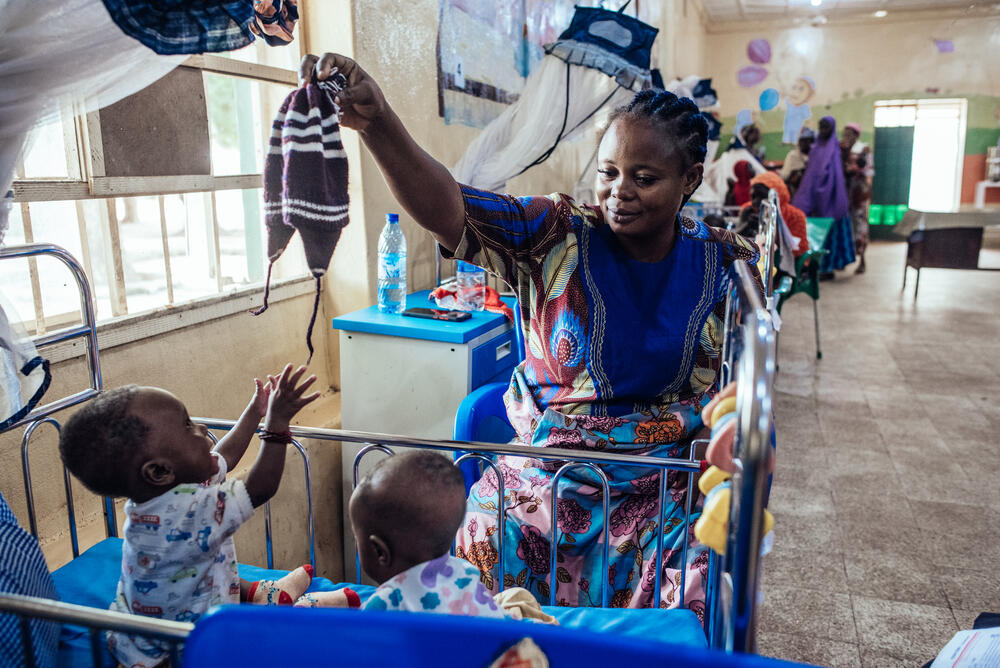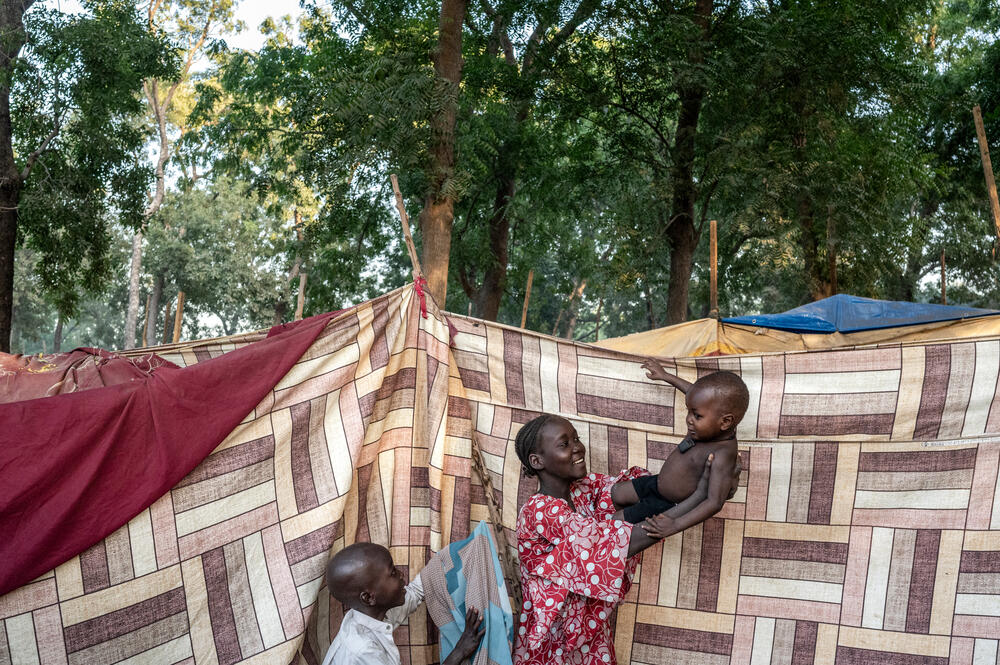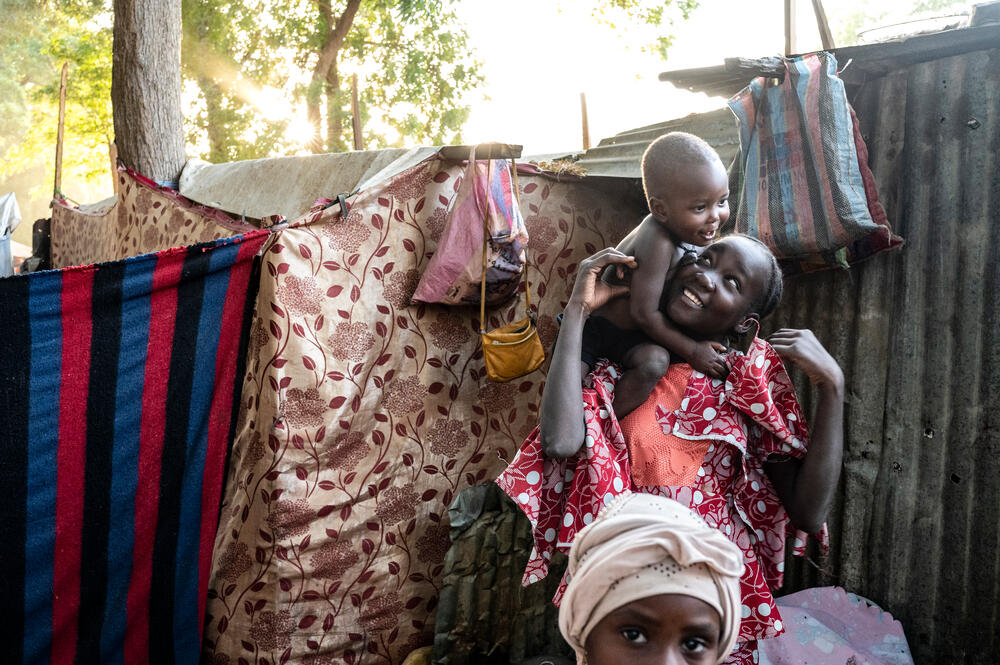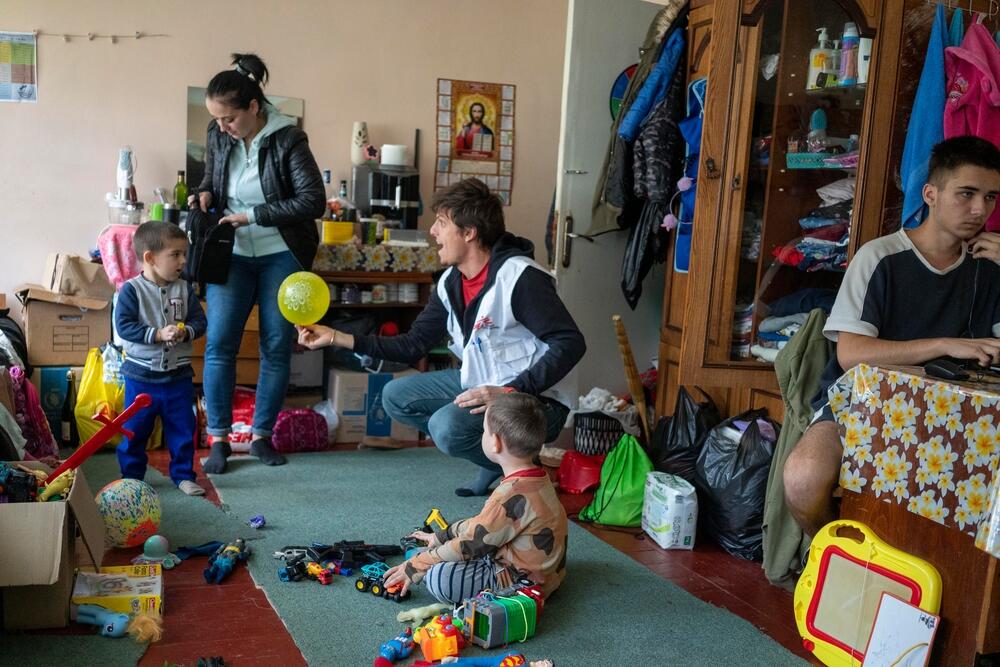Five ways playtime is changing lives for children in crisis zones
It improves health, promotes recovery and dramatically increases every child’s quality of life. It has no side-effects, requires no special storage, and can be safely prescribed by anyone, anywhere. What is this wonder-drug? For the International Day of Play, we share the surprising answer…
Around the world, the majority of MSF’s patients are children.
They are almost always the most vulnerable in disease outbreaks, in natural disasters, and in the harsh living conditions frequently faced by people escaping conflict or the impacts of climate change.
Whilst humanitarian response often focuses on food, shelter and medical care, children have another inherent need which is often overlooked: play.
Play stimulates brain development, forging neural connections, particularly in the first five years of life. Play during these early years influences a child’s lifelong trajectory, but children of all ages need to play.
Here’s why play is especially important for children caught up in crises…
1. Children in conflict zones
Right now, an estimated 473 million children live in conflict-affected areas. That’s more than one in six worldwide.
Play can help children process complex feelings of fear, grief and uncertainty. In conflict zones, where a child has lost all feelings of familiarity and control, play can help them hold on to a sense of identity – of who they are, as well as reducing the impact of stress and building resilience.
Whilst food, shelter, protection and medical care are essential, children also have an inherent need to play and will try to do so even in the most difficult conditions.
2. Children in hospitals
In 2023, MSF teams admitted over half a million children under the age of five for urgent inpatient care.
These young patients are seriously ill or have complex injuries. But they are also in a strange environment, separated from their wider families and the familiar things that bring them comfort.
Play can help. Play helps regulate stress hormones like cortisol, reducing pain and anxiety. This not only reduces suffering during medical procedures, but also means children recover faster.
3. Malnourished children
Malnutrition doesn’t simply cause hunger – it has serious consequences for children’s growth and development. Malnutrition can cause muscle wasting, swelling (oedema) and fatigue, making children withdrawn and less likely to get the stimulation they need to learn and grow.
Play activates the mind, moves the muscles, and strengthens the relationships between children and their care-givers. Alongside appropriate medicines and therapeutic foods, play can help malnourished children to recover cognitively, emotionally, socially and physically.
4. Children in any emergency
Play is vital for a child’s life and health. But in emergency settings, adults may find themselves having to prioritise food, shelter and medicine, and children may be prematurely put to work to help support the family, leaving them with little time for play. Meanwhile parents and care-givers may have difficulty responding to the child’s need for play as they navigate their own suffering and bereavement.
Humanitarian aid, including medical and mental health care, can help relieve some of the worst pressures on families in crisis zones (although cuts to aid budgets mean that these services are under threat in many areas). And wherever assistance is delivered, whether in refugee camps, hospitals, or through mobile teams, toys and decoration can create child-friendly environments that support children and families to feel safe and reconnect through play.
Lack of toys isn’t a barrier. The possibility of play exists everywhere, at any time. A joke, a song or a silly dance are all ways to make play part of a child’s everyday life. A simple game of ‘peek-a-boo’ develops children’s language skills and helps establish stable, nurturing relationships.
5. Promoting play across MSF
Around the world, our teams are working in communities hit hard by humanitarian crises. To promote play as a way of working with children, MSF has developed the Play Therapy Toolkit. Now, the MSF Inclusive Innovation (an MSF body which fosters innovation in our work) is offering extra support to MSF teams who want to develop the use of play in their projects.
The toolkit was authored by play therapist Katherine Haciomeroglu, who spent a year working with MSF patients and colleagues in Sierra Leone.
Its goal is to help MSF teams make play a key part of the care they offer to children, especially the under-fives. This includes tips for creating child-friendly spaces, guidance on choosing activities to suit children’s developmental stages, and how to make toys from items at hand, such as plastic syringes (without the needle!) and surgical gloves.
Play is enshrined in the United Nation’s Convention on the Rights of the Child, and it is also an essential element in their lives and their care, no matter the circumstances.
MSF research and innovation
Offering high-quality medical care in challenging settings means that research and innovation is in our lifeblood.
